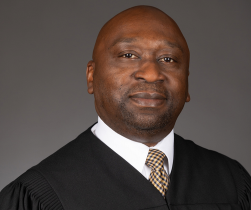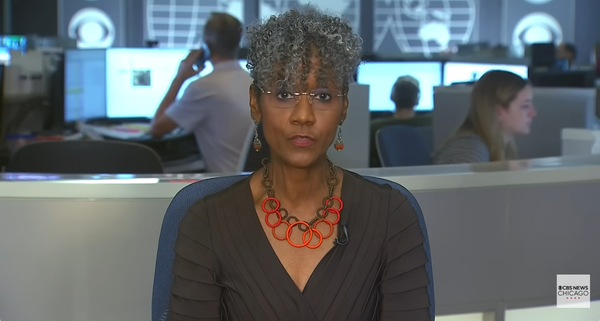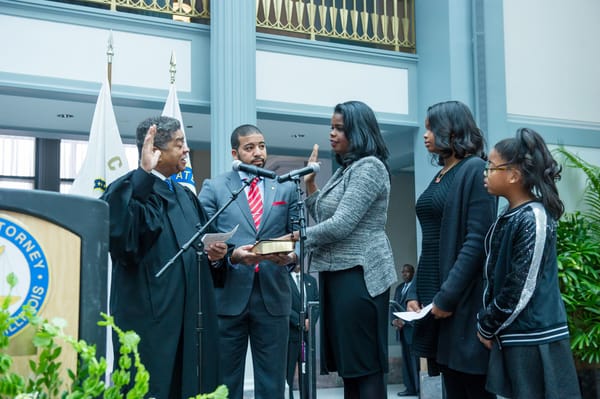Kim Foxx: "We need to prevent wrongful convictions"
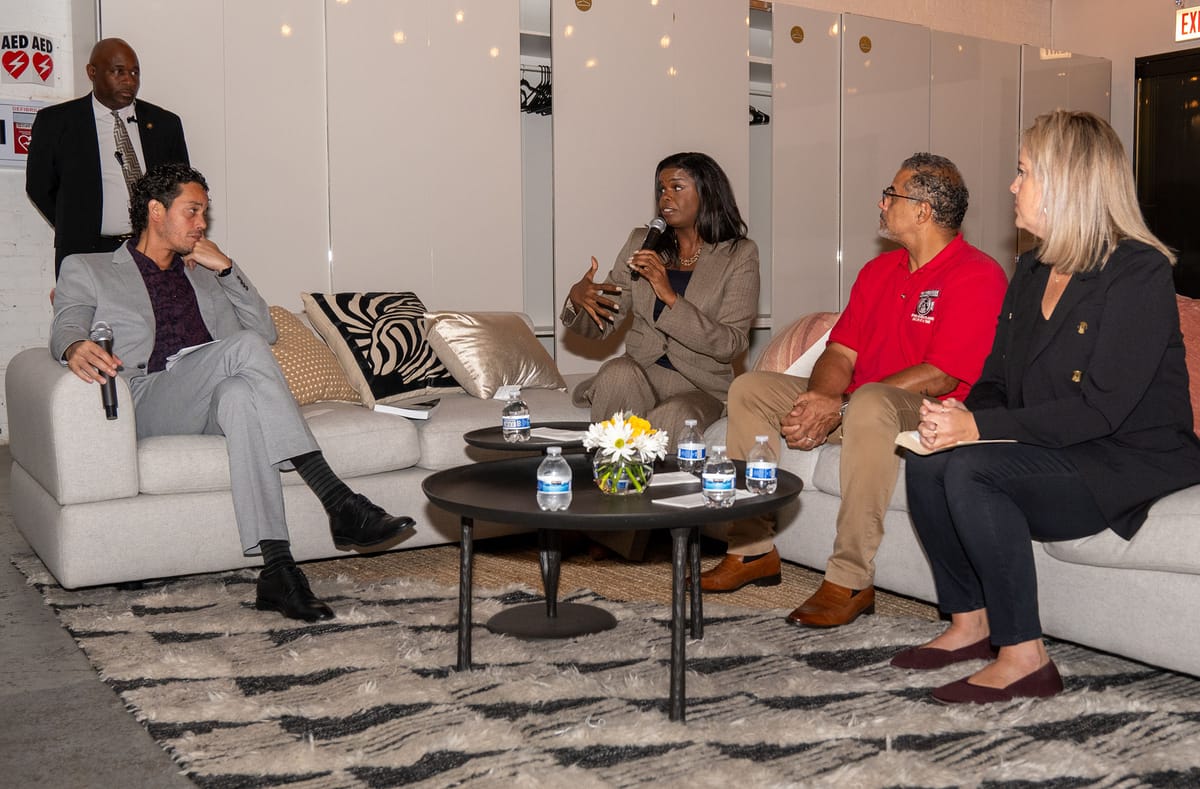
In a call to action outgoing Cook County State's Attorney Kim Foxx says the county needs to develop better models for not only reviewing wrongful conviction cases but also preventing them from happening in the first place.
"We need to prevent wrongful convictions," Foxx said to an audience of about 100 people Monday at an event in Humboldt Park convened to mark the 10th anniversary of Wrongful Conviction Day. "That means having accountability for police and prosecutors."
In the eight years since Foxx became top prosecutor in 2016, her review of the evidence in wrongful conviction claims resulted in the office vacating the convictions of 253 people.
Exonerees include Marcel Brown as well as the state's first ever mass exoneration where a review of these cases revealed a similar pattern and practice of a police officer violating the accused person's constitutional rights and using coercion to elicit false confessions and false witness statements. But Foxx says that these exonerations haven't even scratched the surface.
No Room for Truth
Citing statistics that between 4% and 10% of people behind bars actually are innocent, Lauren Kaeseberg, legal director of the Illinois Innocence Project said that among the 76,000 people detained in Illinois jails and prisons, as many as 7,600 could be falsely accused and wrongfully convicted.
"The truth is, there's really no room for truth in this adversarial system," said Kaeseberg at the event. "When you're trying to bring truth into the mix after someone has been convicted, in a system that values finality over everything else, its hard to do that."
Foxx acknowledged the conflicts of interest within Cook County.
"I have nothing to lose by being honest with you. When you say 'Hey, We got it wrong.' for judges who may have worked in the [State's Attorney's] office – that's trouble. For people in the office who want to be judges who are being evaluated based on what we're doing here – that's difficult for them."
Foxx said that some of the biggest resistance she has had with wrongful conviction reviews has been with the judiciary and people within the State's Attorney's Office.
Even as Foxx said that she is proud of the conviction review team she built, she advocated for independent review of wrongful conviction claims.
"I think that the best practice model is to have an outside group look at these cases."
During Foxx's tenure, a group of attorneys from New York were tasked to review about dozen and a half cases of convictions from the late 1980's and early 1990's based upon claims of systematic police torture by a half dozen police officers who worked under former police commander Jon Burge. In an effort to close cases Burge imported torture techniques from his time serving in the Army during the Vietnam War to interrogation rooms on the South Side of Chicago.
"We have small pilot we've been working on," Foxx said. "We had three people. Three lawyers. None of them worked in this office. There's no worry about politics. There's no worry about 'I used to do trials for this person,' or 'I gotta practice in front of that person.' I think the out comes are better."
Kaeseberg agrees. "There are certain things that need to continue no matter who is in that chair."
Stanley Howard, a community activist, author of Tortured By Blue and wrongful conviction survivor said that a system where prosecutors are reviewing the work of other prosecutors inherently stymies the process.
"The system needs to be redesigned," Howard said. "We need something other than what we have right now because it's not working."
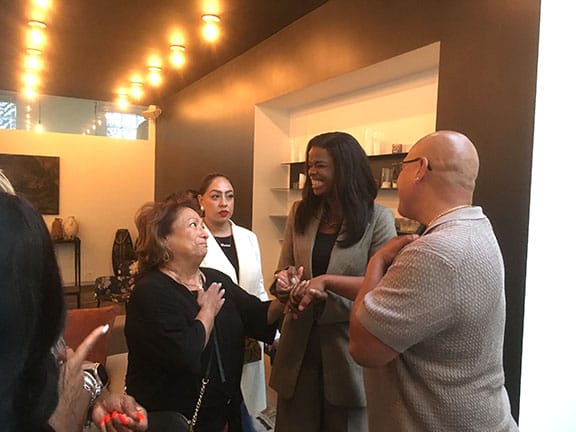
This Doesn't Stop With Me
It is uncertain whether or not independent reviews will continue.
On November 5th Cook County will elect its next State's Attorney. All three candidates have been critical of Foxx's approach to reviewing wrongful conviction claims.
Foxx told the audience that the unit reviewing wrongful conviction claims wouldn't be able to get to all of the cases by December 1.
"I know that we're not going to be able to get to all of the cases that people would want us to," said Foxx who at the event met people whose cases she has vacated with hugs and good wishes. "I do spend nights knowing the names of your loved ones that are there. I can't just sign off because you asked me to."
In the days leading up to the end of her term, Foxx said the office has no plans for a mass exoneration of convictions tied to specific police officers who have been accused of misconduct. Foxx encouraged to continue their fight into the next administration.
"It doesn't stop on December first – It doesn't," Foxx said. "As loud and as fiery and as persistent that you have been with me, I have no doubt that you will continue to be that way with the next administration. This doesn't stop with me."
Innocence Fatigue
Foxx said that part of the challenge with sustaining this work beyond her tenure is the sheer number of wrongful conviction claims within the county.
"The need is deep and the staff is small. My first year in office we had some 300 cases that came our way. So literally there are hundreds of folks who are waiting to be able to have us review their cases. At most we had eight people working on it at one time."
In addition to not enough staff engaged in the work, there are other barriers.
"It's a capacity problem, but it's more. We see all the time doing this work what we refer to as an 'innocence fatigue.' When we go into court there's an imperceptible and sometimes perceptible sigh, 'Oh here they come again,'" Kaeseberg said.
"It's a sense that we have the best system in the world. That we usually get it right and this is a one-off situation. But that's not true. Look around this room. Look around this city. Look around this state. We lead the nation in wrongful convictions."
Statewide Issue
In addition to the challenges in Cook County, the most populous county in the state, Foxx says other counties in Illinois need to review their convictions.
"I shudder to believe that there's a need in Lake County, DuPage County, Effingham County – statewide," Foxx said.
Foxx said that Illinois needs a uniform approach to reviewing claims of wrongful convictions.
"We need legislation that codifies the review of wrongful convictions that is premised on a best practices model so the next person doesn't come in and depriortize the work," Foxx said.

